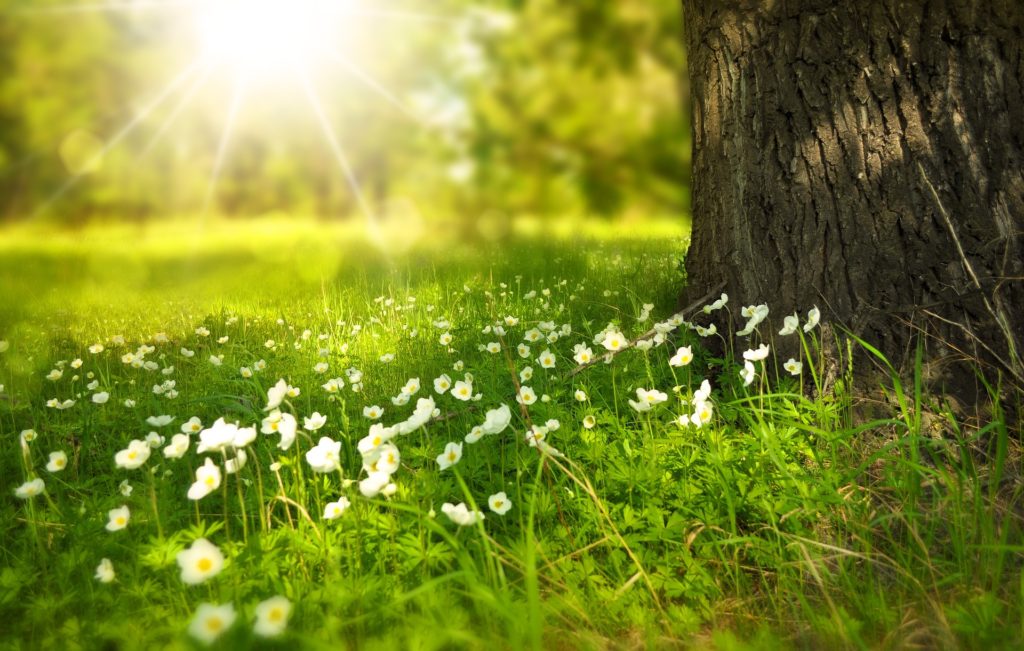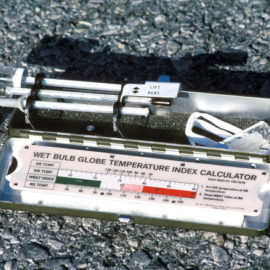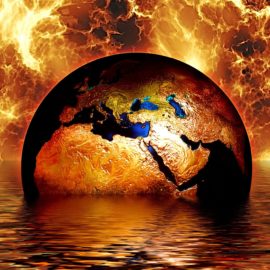
Renounce what you don’t like. Should we do that to climate change?
A monastic once told me renunciation can be great if it means giving up things that make you miserable. This vision, I think, is what has been missing when we talk about the climate crisis — and how we should respond to it. This vision, I think, is what has been missing when we talk about the climate crisis — and how we should respond to it. Much of the reluctance to do what climate change requires comes from the assumption that it means trading abundance for austerity, and trading all our stuff and conveniences for less stuff, less convenience. But what if it meant giving up things we’re well rid of, from deadly emissions to nagging feelings of doom and complicity in destruction? What if the austerity is how we live now — and the abundance could be what is to come?
washingtonpost.com
We are not in a good state now.
Look closely, and you can see that by measures other than goods and money, we are impoverished. Even the affluent live in a world where confidence in the future, and in the society and institutions around us, is fading — and where a sense of security, social connectedness, mental and physical health, and other measures of well-being are often dismal. This is the world we live in with fossil fuel — the burning of which makes us poorer in many ways. We know that the fossil fuel industry corrodes our politics. We know that worldwide, breathing air contaminated by fossil fuel kills more than 8 million people a year and damages many more, particularly babies and children. And we know that as fossil fuel fills the upper atmosphere with carbon dioxide that destabilizes temperature and weather, it increases despair and anxiety. All of this has particularly affected the young, who are justified in their fury and grief. But in truth, we’re dealing with a broader sense of helplessness and even guilt — the impact on the psyche of witnessing or feeling complicit in something wrong. This is moral injury, and many of us suffer from it. Or we try to avoid seeing and thinking about it, and adopt a numbing, willful obliviousness.
We don’t act when action is needed.
Such numbing breeds inaction, when this crisis demands specific action: a swift transition toward renewables, improved designs for the built environment, better care for the natural world in all the ways we interact with it. The good news is, the knowledge that we are not separate from nature but dependent on it is already far more present than it was a few decades ago. Everywhere, I see people rethinking how they work and live, turning this knowledge into reality. I see farmers who consider not just crops and profit, but the sustainability of the wild things and waterways and nature around them — who work the land for this year’s harvest and for the long-term well-being of the whole. I see the resurgence of Indigenous power and vision in climate protests, but also in ideas about food, time and values. I see champions for the oceans and their denizens, for the forests, for the whole miraculously beautiful biosphere. Such projects need participation, defense and expansion; we need to cultivate and amplify this knowledge until it’s how the world works and how we understand the world.
We need to change our perspective.
To accomplish that, we need a large-scale change in perspective. To reframe climate change as an opportunity — a chance to rethink who we are and what we desire. What if we imagined “wealth” consisting not of the money we stuff into banks or the fossil fuel-derived goods we pile up, but of joy, beauty, friendship, community, closeness to flourishing nature, to good food produced without abuse of labor? What if we were to think of wealth as security in our environments and societies, and as confidence in a viable future? “Getting and spending, we lay waste our powers,” William Wordsworth wrote a couple of centuries ago. What would it mean to recover those powers, to be rich in time instead of stuff? For so many of us, being busy with work has leached away our capacity to pursue true riches. What if we were to prioritize reclaiming our time — to fret less about getting and spending — and instead “spend” this precious resource on creative pursuits, on adventure and learning, on building stronger societies and being better citizens, on caring for the people (and other species and places) we love, on taking care of ourselves?
Let’s do what we have to do in a disaster.
When I was researching a book on how people respond to disasters, I was struck less by the fact that most people were brave, altruistic and able to improvise new social networks and means of survival, and more by the fact that amid these improvisations, they found something they craved so much that even amid death, ruin and disorder, their joy shone out. To respond to the climate crisis — a disaster on a more immense scale than anything our species has faced — we can and must summon what people facing disasters have: a sense of meaning, of deep connection and generosity, of being truly alive in the face of uncertainty. Of joy. This is the kind of abundance we need to meet the climate crisis, to make many, or even most, lives better. It is the opposite of moral injury; it is moral beauty. A thing we needn’t acquire, because we already have it in us.
A different perspective But one that would be hard to do. Individually we could easier but collectively?



